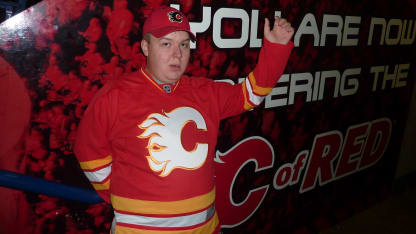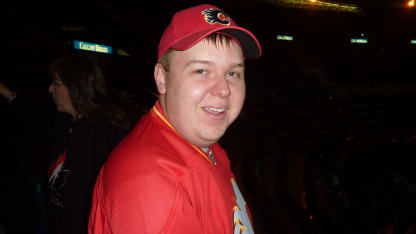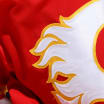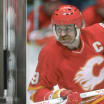So, we know his likes and have a base understanding of how he copes with situations and are able structure his day-to-day life in the best possible fashion.
He loves movies, is an avid bowler and bocchi player with Special Olympics, is an avid reader, volunteers at the Humane Society, and adores music.
Jari also enjoys hockey.
Why he likes hockey, I'm not sure, but I do know that he views the game from a different lens than I do.
First of all, when at live games, he has a tendency to keep glancing back at the score clock. He isn't impatiently awaiting the end of the game - he's monitoring the numbers. The repetition of the clock, the score changing, penalties being listed - they all interest him.
In-game components are also heightened for him.
He has attended Flames and Hitmen games and when the horn goes off, he often cups his ears. At first, I was concerned the sound was aggravating him but after a few times, I noticed he was smiling. Evidently the vibrations from the horn were a source of joy for him and he was amplifying it for himself.
Jari also loves when the flames go off for a Calgary goal, creating a high-sensory moment for him.
The action, especially hits, seems to draw in his interest, as well. When players collide along the glass, the sound and vibrations add to the experience for him.





















